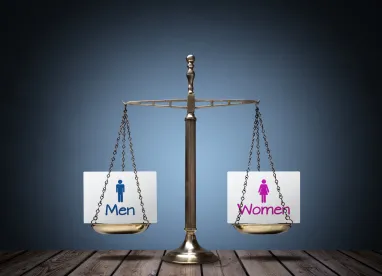In the past, the argument was often made that a female employee might not be entitled to a differential compensation claim due to lower pay compared to a male colleague, if the higher salary of the male colleague who performed the same work or equal work for the same employer resulted from his better negotiating skills in the context of salary negotiations. The point was made that employers have an interest in recruiting employees, and this justified salary differences in individual cases. According to the lower courts, employee recruitment was an objective criterion for differentiation. This view was clearly rejected by the German Federal Labor Court in its decision of February 16, 2023 (file number 8 AZR 450/21).
In principle, a female employee is entitled to the same salary that a male colleague receives for the same work or equal work. If a female employee receives a lower salary than a male colleague for the same work or equal work, a rebuttable presumption arises under Section 22 of the General Equal Treatment Act (AGG) that the discrimination is based on gender.
The recent decision of the Federal Labor Court was based on the complaint of a female sales representative. The case concerned, among other things, the fact that the basic compensation agreed in her employment contract was a gross salary of €3,500 per month. At about the same time that the female employee was hired, a male sales representative was also hired. The employer also offered him a monthly gross salary of €3,500 when he was hired. However, the male colleague refused a salary in this amount and negotiated. He demanded a basic salary of €4,500 gross per month from the employer until the introduction of a performance-related compensation component. The employer ultimately acceded to this demand in order to fill the position.
Since both the plaintiff (i.e., the female sales representative) and her male colleague performed the same job but earned different salary amounts, it was presumed that the unequal treatment was due to gender. In principle, such a presumption can be rebutted on the basis of objective criteria. However, in the view of the Federal Labor Court, the employer did not succeed in doing so in this case. The Federal Labor Court did not consider better negotiating skills to be a suitable criterion to justify unequal treatment in the payment of compensation. The employer’s argument that the higher-paid male colleague had replaced a female employee who had left the company and who had also earned more due to management duties was also not valid in the view of the Federal Labor Court.
The plaintiff therefore received the differential remuneration sued for on the basis of Art. 157 of the Treaty on the Functioning of the European Union (TFEU), § 3 (1) and § 7 of the German Remuneration Transparency Act (EntgTranspG), and she received a compensation payment pursuant to § 15 (2) AGG due to the discrimination that occurred.
This decision of the Federal Labor Court considerably restricts the objective, gender-neutral criteria that can justify different pay for the same work or equal work. Negotiating skills are now ruled out as a justification for a higher salary. However, differences in qualifications or professional experience continue to be recognized as objective criteria that may justify a compensation differential.




 />i
/>i
